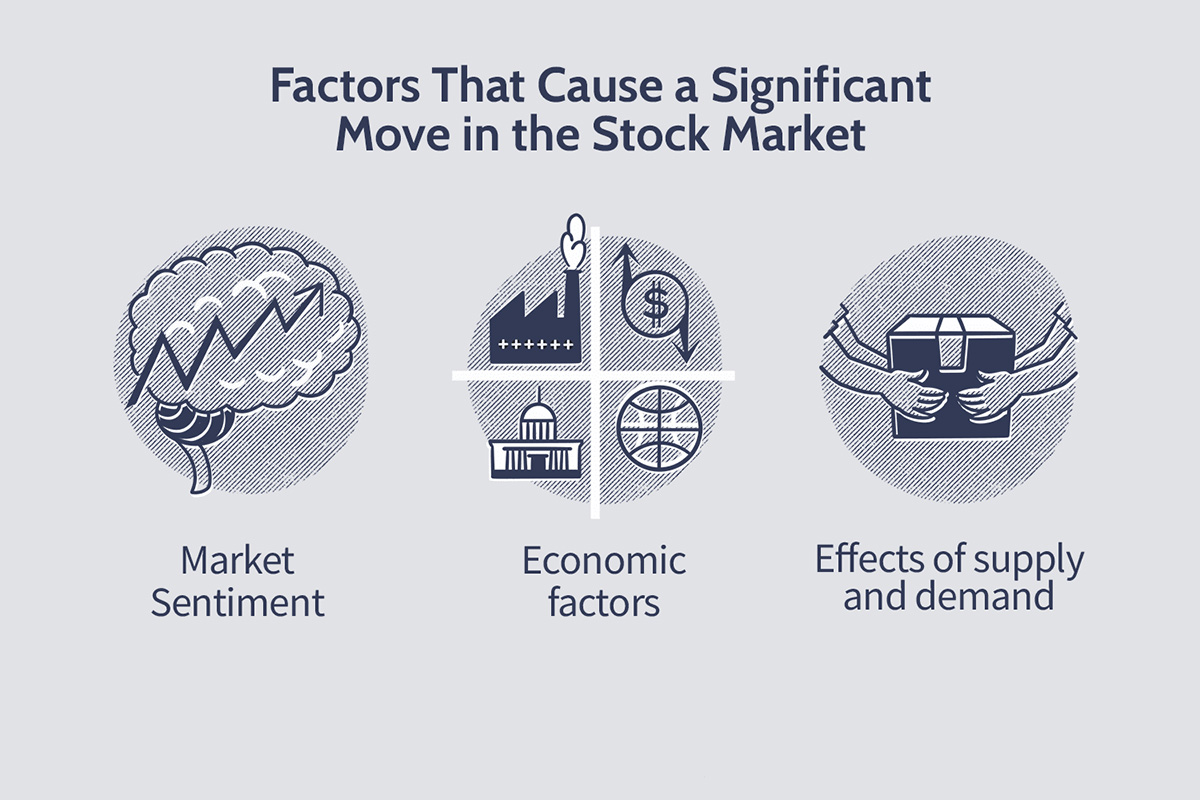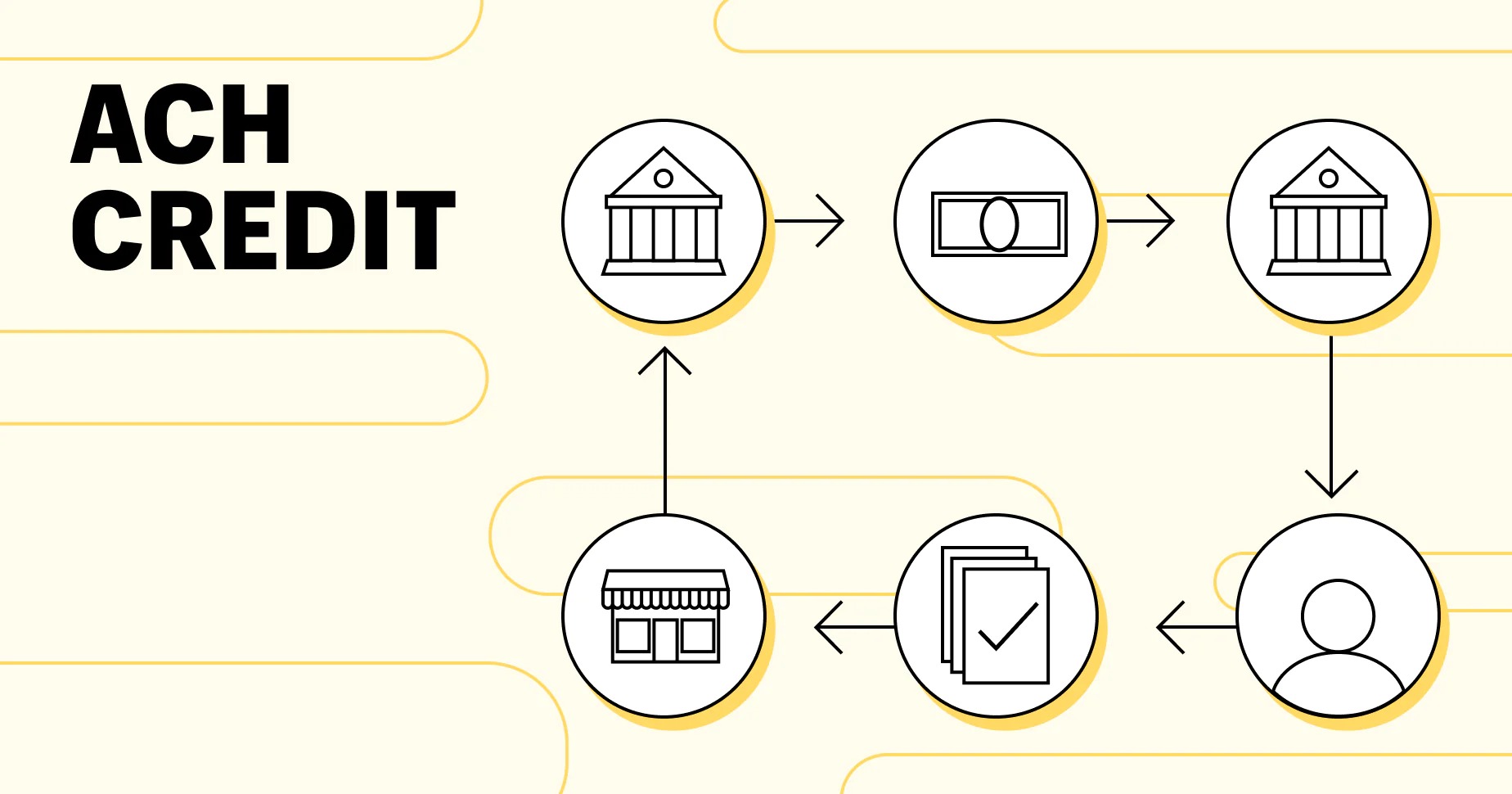

Finance
Why Do You Want To Work In Fintech?
Published: October 29, 2023
Discover why working in fintech is the perfect opportunity for finance enthusiasts. Explore the dynamic world of finance and unleash your potential in this thriving industry.
(Many of the links in this article redirect to a specific reviewed product. Your purchase of these products through affiliate links helps to generate commission for LiveWell, at no extra cost. Learn more)
Table of Contents
- Introduction
- Growing Demand for Fintech Professionals
- Impact of Fintech on Traditional Financial Services
- Exciting Innovations in the Fintech Industry
- Opportunities for Career Growth in Fintech
- Job Roles and Skills in Fintech
- Potential Challenges in the Fintech Workforce
- Personal Motivations and Reasons to Work in Fintech
- Conclusion
Introduction
The world of finance has undergone a massive transformation in recent years, thanks to the advent of financial technology, or fintech. With the rise of digital platforms, mobile banking, and innovative payment solutions, the fintech industry has disrupted traditional financial services and created new opportunities for professionals seeking a dynamic and rewarding career. If you are considering a career in fintech, you may be wondering what makes this field so appealing and why you should pursue it.
In this article, we will explore the reasons why working in fintech can be a smart career choice. From the growing demand for fintech professionals to the exciting innovations in the industry, we will delve into various aspects that make fintech an attractive field to work in. Moreover, we will discuss the potential challenges and highlight the key skills and job roles that are in demand in this thriving industry.
Fintech has quickly gained momentum and transformed the financial landscape. Traditional banking and financial institutions are embracing technology to enhance efficiency, improve customer experience, and stay competitive. Fintech solutions such as mobile banking apps, robo-advisors, peer-to-peer lending platforms, and blockchain technology have revolutionized the way financial services are delivered.
As consumers increasingly turn to digital platforms for their financial needs, there is a growing demand for professionals who can navigate the complexities of fintech. Whether you are a software developer, data analyst, UX designer, or marketing expert, there are numerous opportunities in fintech that can cater to your skills and interests.
Moreover, the fintech industry offers a unique blend of finance and technology, making it an attractive field for those who are looking to combine their passion for finance with their tech-savviness. If you have a strong interest in both finance and technology, working in fintech allows you to work on cutting-edge projects and contribute to the digital transformation of the financial sector.
In the next sections, we will explore the impact of fintech on traditional financial services, the exciting innovations in the fintech industry, the potential career growth opportunities in fintech, and the skills and job roles that are in demand. We will also discuss the potential challenges you may face when working in fintech and the personal motivations that can drive you to pursue a career in this field. So, let’s dive in and explore why working in fintech can be an exciting and fulfilling choice.
Growing Demand for Fintech Professionals
The rapid growth of the fintech industry has created a high demand for skilled professionals with expertise in finance, technology, data analytics, and cybersecurity. As more financial institutions and startups embrace digital transformation, there is a pressing need for individuals who can navigate the complexities of fintech and drive innovation.
One of the key drivers behind the increasing demand for fintech professionals is the shift towards digital banking and online financial services. Consumers are increasingly opting for mobile banking apps, online payment platforms, and robo-advisors to meet their financial needs. This has created a demand for professionals who can develop and maintain these technological solutions and provide a seamless user experience.
Besides, traditional financial institutions are also recognizing the need to adapt and integrate fintech solutions into their operations in order to stay competitive. This has led to a surge in demand for professionals who can help bridge the gap between traditional finance and technology. Roles such as fintech consultants, digital strategists, and project managers are in high demand as these organizations seek experts to guide them through the digital transformation process.
Furthermore, the rise of big data and analytics in the fintech industry has created a demand for professionals who can analyze vast amounts of financial data and extract meaningful insights. Data scientists, quantitative analysts, and risk managers are sought after to help financial institutions make informed decisions, identify new market opportunities, and manage risks effectively. With the increasing reliance on data-driven decision-making, the demand for these professionals is expected to continue to grow.
Another area within fintech that is experiencing rapid growth is cybersecurity. As financial transactions increasingly move online, the need to protect sensitive financial data from cyber threats has become critical. Fintech companies and financial institutions are investing heavily in cybersecurity measures, leading to a high demand for professionals who can develop and implement robust security protocols. Cybersecurity analysts, ethical hackers, and information security managers are highly sought after in the fintech industry.
Overall, the growing demand for fintech professionals is a direct result of the industry’s ongoing transformation and the increasing reliance on technology in the financial sector. As technology continues to shape the future of finance, the demand for skilled and knowledgeable professionals will only continue to rise. This presents a wealth of opportunities for individuals seeking a career in fintech.
Impact of Fintech on Traditional Financial Services
Fintech has had a profound impact on traditional financial services, disrupting long-standing business models and revolutionizing the way financial transactions are conducted. The rise of digital platforms and innovative technologies has transformed various aspects of the financial industry, including banking, lending, payments, and wealth management.
One of the most noticeable impacts of fintech is the shift towards digital banking. Traditional brick-and-mortar bank branches are being replaced by online banking platforms and mobile apps, allowing customers to conveniently manage their finances from anywhere at any time. This has not only improved customer convenience but has also significantly reduced operational costs for financial institutions.
Lending has also been greatly influenced by fintech. Peer-to-peer lending platforms have emerged, connecting borrowers directly with lenders, bypassing traditional banks. This has provided individuals and small businesses with easier access to credit, while offering investors an alternative investment opportunity. Fintech has also brought about the rise of online lending platforms, which use data analytics and algorithms to streamline the loan approval process and make it more efficient.
In the payments sector, fintech innovations have introduced faster and more secure transaction methods. Mobile wallet applications and contactless payment solutions have gained popularity, providing users with a convenient and seamless way to make payments. Blockchain technology has introduced the concept of digital currencies like Bitcoin, offering a decentralized and transparent payment system that has the potential to revolutionize cross-border transactions.
Wealth management has also witnessed significant changes due to fintech. Robo-advisors have emerged as automated investment platforms that use algorithms to provide personalized investment advice and manage portfolios. These platforms are often more cost-effective than traditional financial advisors and provide access to investment opportunities for individuals with lower levels of wealth.
The impact of fintech on traditional financial services extends beyond convenience and efficiency. It has also empowered individuals and businesses with greater financial literacy and control over their finances. With access to real-time financial information, personalized financial planning tools, and educational resources, individuals can make more informed financial decisions and take control of their financial well-being.
While the impact of fintech on traditional financial services has been positive in many ways, it has also presented challenges for traditional financial institutions. These institutions have had to adapt to the changing landscape by integrating fintech solutions into their operations, collaborating with fintech startups, and enhancing their digital offerings to remain competitive.
Overall, the impact of fintech on traditional financial services has been transformative, driving innovation, and improving customer experiences. As fintech continues to evolve, it will shape the future of the financial industry, making it a fascinating field for professionals looking to be at the forefront of change.
Exciting Innovations in the Fintech Industry
The fintech industry is renowned for its continuous innovation and groundbreaking technologies that are reshaping the way financial services are delivered. From blockchain and artificial intelligence to biometrics and Internet of Things (IoT), fintech is at the forefront of technological advancements. Let’s explore some of the most exciting innovations that are driving the industry forward.
Blockchain technology, most commonly associated with cryptocurrencies like Bitcoin, has the potential to revolutionize various aspects of the financial sector. It provides a secure and transparent system for recording and verifying transactions, eliminating the need for intermediaries. Blockchain applications are being explored for cross-border payments, smart contracts, supply chain management, and even identity verification.
Artificial intelligence (AI) and machine learning have become integral to many fintech solutions. AI-powered chatbots are being used to provide personalized and efficient customer service, while machine learning algorithms analyze large volumes of data to detect patterns, make predictions, and improve risk management. AI is also being used to power robo-advisors, which provide automated investment advice and portfolio management services.
Biometrics, such as fingerprints and facial recognition, are being increasingly utilized for secure authentication in fintech. Biometric authentication provides a higher level of security compared to traditional methods like PIN codes or passwords. This technology is being used for mobile banking apps, digital payments, and even biometric ATMs.
The Internet of Things (IoT) has the potential to transform the way we interact with financial services. Connected devices and sensors can collect valuable data that can be used to personalize services, improve risk assessment, and enable innovative payment methods. For example, wearable devices can track spending habits and provide personalized financial advice, while connected cars can make frictionless payments at gas stations or toll booths.
Open banking is another innovation that is reshaping the financial industry. With open banking, customers have control over their financial data and can provide third-party providers access to it, fostering competition, innovation, and the development of personalized financial services. Open banking APIs allow seamless integration of financial services across different platforms, enabling customers to have a holistic view of their financial data.
Regtech, short for regulatory technology, is a subset of fintech that focuses on helping financial institutions comply with regulations more efficiently and effectively. Regtech solutions leverage AI, machine learning, and data analytics to automate compliance processes, monitor transactions for suspicious activities, and ensure regulatory compliance.
These are just a few examples of the exciting innovations happening in the fintech industry. The continuous advancements and the convergence of finance and technology are creating a fertile ground for ideas and solutions that have the potential to transform the way we manage our finances.
As a professional in fintech, you will have the opportunity to work on cutting-edge projects, shape industry trends, and contribute to the development of innovative solutions that can make a real impact on people’s lives. The fast-paced nature of the industry ensures that there will always be new and exciting innovations to explore and be a part of.
Opportunities for Career Growth in Fintech
The fintech industry offers a wide range of lucrative and exciting career opportunities for professionals with diverse backgrounds and skill sets. As the industry continues to grow and evolve, the demand for skilled individuals is on the rise. Let’s explore some of the key areas of career growth in fintech.
1. Technology and Development: Fintech heavily relies on technology, making it an ideal industry for tech-savvy individuals. There are opportunities for software developers, data scientists, engineers, and UX designers to contribute to the development and improvement of fintech solutions. As technology continues to advance, the need for professionals with expertise in areas such as blockchain, AI, cybersecurity, and mobile app development is expected to grow.
2. Finance and Risk Management: Fintech is at the intersection of finance and technology, making it an attractive field for finance professionals looking to leverage their skills in a tech-driven industry. Professionals with backgrounds in finance, accounting, risk management, and compliance can find opportunities in areas such as financial planning, risk assessment, regulatory compliance, and financial analytics.
3. Data Analytics and Business Intelligence: The fintech industry generates vast amounts of data, and professionals who can analyze this data to derive insights and drive business decisions are in high demand. Data scientists, business analysts, and data engineers play a crucial role in helping fintech companies leverage data to improve product offerings, enhance customer experiences, and optimize business operations.
4. Product Management and Innovation: Fintech companies are constantly innovating and developing new products and services to meet the evolving needs of customers. Product managers play a pivotal role in driving product strategy, identifying market opportunities, and collaborating with cross-functional teams to bring innovative fintech solutions to market.
5. Customer Experience and Marketing: In the fast-paced fintech industry, delivering exceptional customer experiences is paramount. Professionals with skills in customer experience, user research, user interface design, and digital marketing can find opportunities to shape the way customers interact with fintech products and services, as well as engage with customers through targeted marketing campaigns.
6. Entrepreneurship: The fintech industry is ripe with opportunities for entrepreneurs and startup enthusiasts. If you have a groundbreaking idea or have identified a gap in the market, starting your own fintech venture can be a rewarding career path. The entrepreneurial spirit is highly valued in the fintech ecosystem, where startups are disrupting traditional financial services and challenging industry norms.
It is worth noting that the fintech industry is not limited to working for startups. Traditional financial institutions are increasingly embracing fintech and investing in their own digital initiatives. This opens up additional opportunities for working within established organizations that are undergoing digital transformation.
As you embark on your career journey in fintech, continuous learning and staying up-to-date with industry trends is crucial. Fintech is an ever-changing field, and professionals who adapt and embrace new technologies and industry advancements will be at the forefront of innovation and have excellent prospects for career growth.
With the global fintech market projected to grow exponentially in the coming years, the opportunities for career growth in fintech are vast. Whether you are a tech enthusiast, finance professional, data expert, or aspiring entrepreneur, the fintech industry offers an exciting and rewarding path for career development.
Job Roles and Skills in Fintech
The fintech industry encompasses a diverse range of job roles, each requiring specific skills and expertise. The rapid growth and evolution of this sector have created numerous exciting opportunities for professionals with various backgrounds. Let’s explore some of the key job roles and the skills required to thrive in the fintech industry.
1. Software Developer/Engineer: Software developers and engineers are the driving force behind creating and maintaining fintech platforms and applications. Proficiency in programming languages, such as Python, Java, or JavaScript, along with knowledge of software development methodologies and frameworks, is essential. Additionally, expertise in areas like blockchain, artificial intelligence, and cybersecurity is highly valued.
2. Data Scientist/Analyst: As fintech companies collect vast amounts of data, data scientists and analysts play a crucial role in extracting insights and deriving value from this information. Proficiency in data manipulation and analysis tools, such as SQL and Python, as well as knowledge of statistical modeling and machine learning algorithms, is essential. Strong problem-solving skills, critical thinking, and the ability to communicate complex findings are also important.
3. User Experience (UX) Designer: UX designers focus on creating intuitive and user-friendly interfaces for fintech platforms. They employ design thinking principles, conduct user research, and create wireframes and prototypes. Proficiency in design tools, such as Adobe XD or Sketch, as well as a deep understanding of user-centered design principles, information architecture, and interaction design, is crucial. Knowledge of front-end development and accessibility standards is also beneficial.
4. Product Manager: Product managers are responsible for overseeing the development and success of fintech products or services. They define product strategies, conduct market research, and collaborate with cross-functional teams to ensure the delivery of high-quality products. Strong analytical and strategic thinking skills, excellent communication and leadership abilities, and a deep understanding of the fintech industry and customer needs are essential for this role.
5. Cybersecurity Specialist: As the fintech industry faces increasing cyber threats, cybersecurity specialists are in high demand. They are responsible for identifying vulnerabilities, implementing security measures, and ensuring the protection of sensitive data. Knowledge of cybersecurity frameworks, incident response protocols, encryption methods, and network security is crucial. Industry certifications such as Certified Information Systems Security Professional (CISSP) or Certified Ethical Hacker (CEH) are also highly valued.
6. Business Development Manager: Business development managers play a crucial role in identifying new market opportunities, building partnerships, and driving growth in the fintech sector. Strong networking and interpersonal skills, along with a deep understanding of the financial services industry, are essential. The ability to analyze market trends, negotiate deals, and develop long-term business strategies is also important.
These are just a few examples of job roles within the fintech industry. Other roles include regulatory compliance specialists, data engineers, digital marketing managers, fintech consultants, and risk managers. It is worth noting that cross-functional skills, such as problem-solving, adaptability, communication, and teamwork, are valuable across all job roles within fintech.
To succeed in the dynamic and fast-paced fintech industry, professionals should also possess a passion for continuous learning and keeping up-to-date with industry trends. Fintech is a rapidly evolving field, and professionals need to stay agile and adaptable to embrace emerging technologies and industry advancements.
Ultimately, the fintech industry presents an exciting and diverse range of job roles, allowing individuals from various backgrounds to contribute their unique skills and expertise. Whether you have a technical background, a finance background, or a blend of both, there are ample opportunities for growth and success in the fintech industry.
Potential Challenges in the Fintech Workforce
While the fintech industry offers a plethora of opportunities and exciting advancements, it is not without its challenges. Understanding and addressing these challenges is essential for professionals looking to thrive in the fintech workforce. Let’s explore some of the potential challenges that individuals may encounter in the fintech industry.
1. Rapid Technological Advancements: Technology is at the core of fintech, and the industry is characterized by rapid advancements and evolving trends. Keeping up with the latest technologies and industry developments can be a challenge, requiring continuous learning and adaptation. Fintech professionals must be willing to embrace change and stay updated with emerging technologies to remain competitive and relevant in the field.
2. Regulatory Compliance: Fintech operates in a highly regulated environment, and adherence to regulatory frameworks is critical. Compliance with financial regulations, data privacy laws, and cybersecurity protocols can be complex and challenging for fintech companies. Professionals in the industry need to be well-versed in regulatory requirements and stay updated with changes to ensure compliance and avoid potential legal issues.
3. Cybersecurity Threats: As fintech relies heavily on technology and deals with sensitive financial data, cybersecurity threats are a significant concern. Fintech professionals need to be vigilant and proactive in implementing robust security measures to protect against cyberattacks and safeguard customer information. Staying informed about potential threats and keeping up with the latest cybersecurity practices is crucial in mitigating risks.
4. Talent Shortage: The rapid growth of the fintech industry has led to a high demand for skilled professionals. However, there is also a shortage of talent with the required expertise in areas such as software development, data analytics, and cybersecurity. Fintech companies often face difficulty in finding qualified professionals, leading to intense competition for top talent.
5. Collaboration with Traditional Financial Institutions: Fintech startups often need to collaborate with traditional financial institutions to gain access to customers and resources. However, navigating the complexities of partnerships with established financial players can be challenging. Bridging the gap between traditional finance and fintech requires effective communication, understanding of different organizational cultures, and alignment of objectives.
6. Customer Adoption and Trust: While fintech offers innovative solutions, gaining customer trust and adoption can be a challenge. Overcoming resistance to change, addressing concerns around security and privacy, and educating customers about the benefits of fintech products and services requires effective marketing and communication strategies. Building trust and fostering strong relationships with customers is crucial for fintech companies to succeed.
Despite these challenges, the fintech industry continues to grow and thrive, offering immense potential for professionals. Overcoming these challenges requires individuals to be proactive, adaptable, and open to collaboration. Continuous learning, staying updated with industry trends, and building a strong professional network can help professionals navigate these challenges and thrive in the dynamic fintech workforce.
By understanding and addressing these potential challenges, individuals can position themselves for success and make meaningful contributions to the fintech industry.
Personal Motivations and Reasons to Work in Fintech
Working in the fintech industry offers a host of personal motivations and reasons that attract individuals to this dynamic and innovative field. Let’s explore some of the key motivations that drive professionals to pursue careers in fintech.
1. Impact and Disruption: Fintech is at the forefront of revolutionizing traditional financial services. For individuals who thrive on creating impactful change, fintech offers the opportunity to contribute to the disruption of established industry norms, leading to enhanced customer experiences, improved financial inclusion, and increased efficiency.
2. Innovation and Creativity: Fintech is a breeding ground for innovation and creativity. Professionals in this industry constantly search for cutting-edge technologies, innovative solutions, and novel approaches to problem-solving. Working in fintech allows individuals to push the boundaries of possibility, experiment with new ideas, and contribute to groundbreaking advancements in finance and technology.
3. Entrepreneurial Spirit: Fintech fosters an entrepreneurial spirit that attracts individuals who aspire to bring their own ideas to fruition. The industry provides a fertile ground for startups and encourages individuals to take risks, challenge traditional models, and build their own ventures. The thrill and satisfaction of building something from scratch and making a real impact on the market are often strong motivating factors for professionals in fintech.
4. Career Growth and Opportunities: The fintech industry is growing rapidly, providing abundant opportunities for career advancement. Professionals can experience rapid growth, take on diverse roles, and work on exciting projects that enhance their skills and expertise. In this ever-evolving field, there are ample chances to explore new avenues, develop specialized knowledge, and make significant contributions to the industry.
5. Intersection of Finance and Technology: Fintech exists at the intersection of finance and technology, catering to individuals who have an interest in both fields. For finance professionals looking to leverage their skills in a tech-driven industry, fintech offers a perfect blend of their passions. Similarly, technology enthusiasts who have an interest in finance can find fulfillment in working on innovative projects that shape the future of financial services.
6. Financial Inclusion: Fintech has the power to improve financial inclusion by providing access to financial services for underserved populations. For individuals driven by a desire to make a positive social impact, working in fintech allows them to be part of initiatives that empower individuals without traditional access to financial resources, ultimately contributing to greater economic equality.
7. Flexibility and Work-Life Balance: Fintech companies, especially startups, often offer flexibility and remote work options, providing individuals with a better work-life balance. This flexibility can be appealing for professionals who value autonomy and the ability to work in environments that align with their preferred lifestyle and work preferences.
8. Cutting-Edge Technologies: Fintech is at the forefront of adopting emerging technologies such as blockchain, AI, and data analytics. Professionals driven by a fascination for these technologies are drawn to fintech to be part of the exciting advancements in areas such as cryptocurrency, smart contracts, and predictive analytics.
While these are just a few of the personal motivations that drive professionals to work in fintech, it is important to note that the industry offers a range of opportunities to suit different interests and aspirations. Whether it is the desire to make a social impact, the excitement of innovation, or the opportunity for career growth, fintech provides a stimulating and fulfilling environment for professionals passionate about finance, technology, and making a difference.
Conclusion
Working in the fintech industry offers an enticing blend of innovation, opportunities, and personal fulfillment. From the growing demand for fintech professionals to the exciting advancements in technology, fintech provides a dynamic and rewarding career path.
In this article, we have explored various aspects of working in fintech. We discussed the growing demand for professionals with fintech expertise, driven by the digital transformation of traditional financial services. The impact of fintech on the financial industry has been significant, with disruptive technologies reshaping banking, lending, payments, and wealth management.
We delved into the exciting innovations happening in the industry, such as blockchain, AI, biometrics, and IoT, which are revolutionizing financial services and enhancing the customer experience. We have also highlighted the vast opportunities for career growth in fintech, ranging from technology and development to finance and risk management. Professionals with diverse backgrounds and skill sets can find their niche in this rapidly evolving industry.
Of course, the fintech industry is not without its challenges. Rapid technological advancements, regulatory compliance, cybersecurity threats, talent shortage, and establishing collaboration with traditional financial institutions are some of the hurdles professionals may face. However, with the right skills, adaptability, and a passion for continuous learning, individuals can overcome these challenges and thrive in the fintech workforce.
Personal motivations to work in fintech vary widely, whether it is the opportunity to make a social impact, the allure of innovation and creativity, or the desire for career growth. Fintech allows professionals to merge their passion for finance and technology, contributing to groundbreaking advancements that shape the future of financial services.
In conclusion, the fintech industry offers a vibrant and dynamic landscape for professionals seeking a rewarding career. With its constant innovation, diverse job opportunities, and potential for personal and professional growth, fintech provides an exciting path for individuals looking to combine their skills, interests, and aspirations. By staying informed, embracing change, and harnessing the power of technology, professionals in fintech can make a significant impact and be at the forefront of shaping the future of finance.














